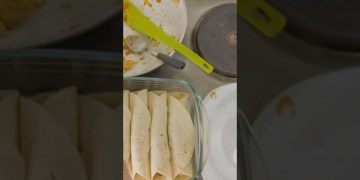
Oobli, a California-based food tech company specializing in sweet proteins, has received its third FDA “no questions” letter confirming the GRAS (Generally Recognized as Safe) status of another of its novel ingredients. The newly approved protein, identified as brazzein-54, is derived from the oubli fruit and will be available for use in food and beverage products across the US.
The decision follows earlier FDA letters for brazzein-53 and monellin, bringing the total number of sweet proteins on Oobli’s platform with regulatory clearance to three. This development strengthens the company’s position as the only commercial supplier of oubli-derived proteins cleared by the FDA for use in consumer goods.
Sugar-like sweetness without the sugar
Oobli’s sweeteners are produced via precision fermentation, a method that allows for scalable, consistent manufacturing of proteins originally found in tropical fruits. Brazzein-54, like its counterparts, delivers a sugar-like taste with a fraction of the quantity required for conventional sweeteners but without the glycemic impact.
According to Jason Ryder, the company’s founder and CTO, sweet proteins like brazzein originate in equatorial fruits and “deliver a sugar-like sweetness but don’t affect blood sugar, insulin, or the gut microbiome.”
While Oobli’s proteins fall under the category of high-intensity sweeteners, they differ from synthetic alternatives such as sucralose or aspartame in both origin and perceived health impact. They also avoid some of the bitter aftertastes associated with stevia or monk fruit, a frequent barrier in reformulation efforts.
70% sugar reduction
For food manufacturers, the practical appeal lies in the ability to reduce sugar content by up to 70% in various applications, including soft drinks, flavored teas, and baked goods, without compromising flavor or adding bulk fillers. This creates flexibility for brands navigating increasingly strict nutrition targets, global sugar taxes, and evolving consumer preferences.
Ali Wing, Oobli’s CEO, noted, “The oubli fruit sweet protein can be safely used in a wide range of foods with support from the scientific community and the FDA. It can replace 70% or more of sugar in products such as sodas, teas, baked goods, and more,” she said.
Oobli is currently scaling its ingredients portfolio through partnerships with major players, including Ingredion and Grupo Bimbo. The company has already introduced branded consumer products, such as milk and dark chocolates, as a proof of concept for its fermentation-derived sweeteners. Further co-branded or white-label launches are expected as partners bring new formulations to market.





































































